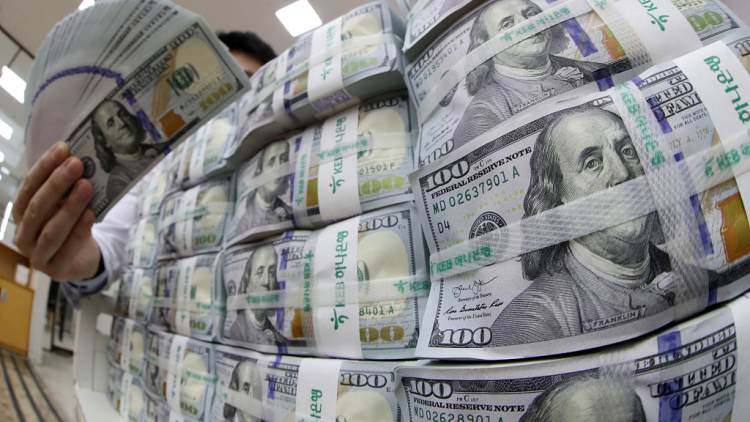By: Bobby Naderi
Editor’s note: Bobby Naderi is a London-based journalist, guest contributor in print, radio and television, and documentary filmmaker. The article reflects the author’s opinions, and not necessarily the views of Nigeria Today.
The U.S. dollar is facing a global revolt and it’s really happening. The greenback is no longer the only option for international trade and capital flows. This is the same currency that used to hold the top reserve currency position for several decades in a row.
Much to the chagrin of Washington, many governments have found alternatives to lessen their dependency on the dollar and on the U.S. economy in general. Russia and China are promoting financial system cooperation to lessen reliance on the dollar. Iran and Russia are collaborating to introduce a cryptocurrency with gold backing. Other nations are likewise lowering their reliance on the dollar, no longer willing to comply with the thousands of U.S. sanctions that have been imposed.
There is some truth to the claim that Washington’s ability to create global economic chaos is not succeeding. A unified currency has been explored by Brazil and Argentina, while some Southeast Asian countries have spoken about ongoing de-dollarization initiatives. Saudi Arabia is open to selling its oil using the Chinese yuan, and the United Arab Emirates (UAE) and India are in discussions about using Indian rupees to trade. To reduce the risk of future dollar strength, even corporations are selling their debt in yuan and other currencies.
Weaponization of dollar reserve system
It was a huge mistake for Washington to frequently weaponize the dollar to put economic pressure on countries that do not uphold America’s interests. The U.S. put the targeted nations who disobeyed its foreign policy goals under immense economic pressure by exploiting the dollar’s influence as the world’s reserve currency. This miscalculated strategy has had a considerable detrimental effect on both the U.S. economy and the economies of targeted nations.
The instability of the international financial system is one of the main consequences of using the U.S. dollar as a weapon. The U.S. effectively endangered the integrity of the global financial system by using the dollar as a weapon. It’s a sign of the U.S.’s imperialistic decay, the erosion of its power, the ability of many countries to find ways to connect with each other, and use new currencies despite the U.S. threats.
It’s a new period for new trade agreements, especially among BRICS nations under the Belt and Road Initiative, Shanghai Cooperation Organization and other mechanisms, which have promoted new levels of cooperation. This surely challenges the U.S. dollar’s status as the world’s reserve currency with detrimental effects on its economy.
The lesson is all too clear. The U.S. government has failed to use its economic might to intimidate other nations into submission by using the dollar as a weapon. There is now a huge animosity as well as a decrease in the U.S.’s standing internationally.
Aggressive economic statecraft
The U.S. dollar as both fiat money and legal tender was never intended to offer a variety of possible advantages for nations seeking to boost their economic independence, let alone lessen their susceptibility to sanctions or encourage stability in the international financial system. Little wonder many countries have been forced to challenge the dollar’s hegemony through different means.
China and Russia use their currencies for cross-border transactions, including through the application of blockchain technology. Likewise, India has started arranging a bilateral payment mechanism with the UAE as it started to speak out more frequently about de-dollarization. Asian economies are also under immense pressure to take a side as a result of the U.S. choosing to utilize the currency as part of an aggressive type of economic statecraft.
These nations and many others are no longer willing to comply with U.S. sanctions that are only there to divide the globe and force nations to take a side. They lose out on trade with important partners like Russia and China as they don’t have an alternative payment mechanism.
Let’s take a closer look. China-Russia cooperation in the financial system will speed up a long-running push to increase the use of the yuan as a go-to-choice for regional trade and global capital flows, thereby establishing international trade settlement agreements without using the U.S. dollar. There are advantages for other nations as well, such as greater economic independence and financial inclusion, lower trade obstacles and decreased susceptibility to U.S. economic penalties, and consequently improved stability in the international financial system.
In the current atmosphere, the international financial system is expected to become more stable as a result of de-dollarization. Global trade and finance were never meant to be dominated by the U.S. dollar forever, as it will cause further volatility and instability. The risk of a single currency sparking a worldwide financial collapse can and will be decreased by diversifying the currencies used in international trade and banking.












































